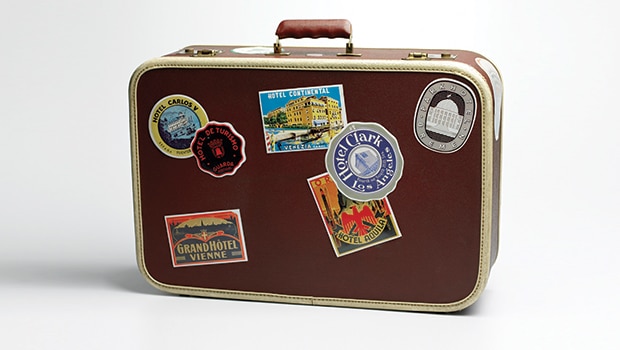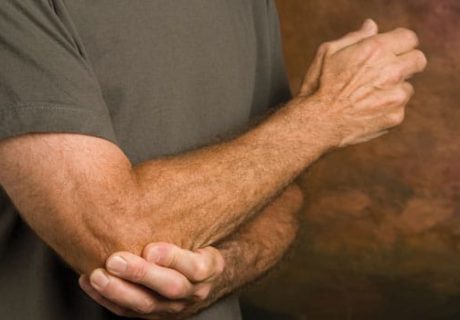With the holiday season rapidly approaching, Jane Wolfe looks at what natural solutions should be packed, and preventative measures taken, to increase the chances of a relaxing and trouble-free break
Whether your customers are planning a week caravanning in the Brecon Beacons or a month trekking in the Himalayas, taking a holiday can bring with it a number of potential health issues, but there are many efficacious solutions to help your customers return refreshed and raring to go, rather than feeling like they need another break.
Hard to stomach
Gastrointestinal problems affect four in ten Britons abroad and are no laughing matter if they spoil a well-earned break. There are some simple avoidance tactics that holidaymakers can take, but advanced preparation is key.
“Holiday tummy is quite difficult to avoid,” says Shona Wilkinson, head nutritionist, Nutricentre, “and this is the number one problem that people call us about. There are the usual classic countries like India or Egypt, where you’re pretty much guaranteed to get something, but sometimes it’s not bacteria in food, it’s as simple as having a different diet. Some people are really sensitive, no matter how hygienically food is cooked.”
“There are bacteria and microorganisms around us all the time,” says Natalie Lamb, nutritional therapist and technical advisor at Protexin, “but when we go somewhere new there are different bugs that we’re not used to, so sometimes we can react for that reason.”
“By taking probiotics before you go travelling, you can prepare your gut flora to make sure it’s at its best and ready for the onslaught that is the holiday,” says Wilkinson.
“Our standard advice is to take a probiotic like Bio-Kult two weeks before you go away, while you’re away, and then for two weeks when you get back just in case there’s a bug still lingering in your system,” adds Lamb.
Wilkinson often recommends Optibac Probiotics for Travelling Abroad: “There are thousands of different strains of live bacteria, and Optibac has chosen ones strong enough to cope with bacterial issues when travelling abroad – it’s a really potent probiotic.”
“If someone is prone to loose stools when they are away or know they won’t be getting enough fibre,” says Lamb, “then Lepicol is a good product as it is a three-in-one combination with phylium husk fibre as well as prebiotics and probiotics.”
For stomach problems Leila Abachi, a pharmacist at Nelsons, also recommends getting your gut into good condition before going away. “As well as probiotics, I would suggest Citricidal (grapefruit seed extract) – it’s a great one to prep your gut. It helps with increasing your gut bacteria and is also a natural antibacterial – it boosts digestive function.”
If you are, however, unlucky enough to fall prey to a stomach bug, it’s important to replace the electrolytes you’ll have lost so you can get back on your feet as soon as possible. “I usually take Elete,” says Wilkinson, “You just add a few drops to a glass of water and it replaces your electrolytes and speeds recovery.”
Elete can also help with hangovers. “With alcohol it’s all about dehydration and removal of nutrients,” she says. “If you take it before you go to bed it can help with hydration levels.”
New product Enterosgel works as both a preventative and first aid measure for food and alcohol poisoning, vomiting bugs, indigestion and diarrhoea. Based on minerals, it works like a sponge to help remove toxins from the body and is suitable for children and those who are pregnant or breast-feeding.
Travelling light
Even getting to your ‘fun in the sun’ can entail problems: travel sickness – which affects 60-70% of the population at one time or another – jet lag, stress, anxiety and even the dreaded ‘airplane cold’.
“A common problem is that when people are very stressed they become ill as soon as they go on holiday – that is the classic stress response,” says Wilkinson. “You’re body keeps going while you’re
busy, but as soon as you relax it almost collapses.”
She believes it is important for people to recognize and prepare to deal with their stress prior to their holiday. “Stress severely depletes your B vitamins so it’s important to take a B complex, and ashwagandha helps you cope with stress for longer – we do a really good one by Pukka. Also, make sure your immune system is up and running to help reduce that stress response crash. Vitamin C and zinc are important, and Bee Prepared is a really nice supplement for this.”
She adds: “If you are flying, it’s probably best not to read about how many germs are on an aeroplane! My must-have is colloidal silver spray – I wipe down the food tray and spray it around me. It’s antibacterial and antiviral – it’s amazing stuff.”
Stress can reduce the gut flora balance and this is another reason for taking probiotics. “70% of our immune system is located in the gut, so probiotics can help rebalance the gut flora and are a general support the immune system,” says Lamb.
For travel sickness, as well as ginger Wilkinson recommends Wild Nutrition’s Wild Traveller, a food state mixture of nutrients and botanicals including ginger, zinc, magnesium, vitamin C, NADH, Pycnogenol and Cordyceps sinensis, designed to help with both sickness and immunity.
“I swear by Nelson’s Travella,” says Abachi. “Ideally you take it before you start your journey, then while you’re on the trip you can take it every two hours or so. It’s really good for motion sickness and nausea, and is a very good liver support.”
For fear of flying, she recommends aconite 200 as well as Rescue Remedy, both of which can also be taken before and during travel.”
Fight the bite
With the recent worrying headlines about the zika virus, many travellers may be taking more precautions than usual to prevent mozzie bites.
Wilkinson says most people go for vitamin B1, but stresses that you need to take an adequate amount. “If you take 500mg of vitamin B1 for about two weeks before you go on holiday, any excess is secreted out through the skin, and the smell acts as an insect repellent, specifically for mosquitoes.”
With some mosquitoes having developed a resistance to DEET, natural alternatives are really coming into their own. P-menthane-3,8-diol, a natural ingredient found in the essential oil of Eucalyptus citriodora leaves, has recently fared better than DEET in tests. Mosi-Guard, which contains Citriodiol, and incognito, which uses Citrepel 75, have both have been successfully tested for protection against mosquitoes.
One of the mainstays if you do get bitten is aloe vera gel, which is also great for sunburn. “We have a really nice aloe vera-based Bites & Stings Gel that we prepare in the pharmacy, and that calms the swelling,” says Abachi.
Skin protection
Skin cancer is the most common cancer in Britain, with over 13,000 new cases of melanoma diagnosed and more than 2,100 Britons dying from skin cancer each year.
Researchers from George Washington University recently concluded that there is ‘no such thing as a safe tan’ and this has led to further confusion among consumers.
“There are very confused messages at the moment,” says Wilkinson. “People have been told for years to cover up and have total block on all the time, but anything above SPF 8 blocks your vitamin D production, so it’s a bit of a double-edged sword. There are now recommendations saying it’s good to go out into the sun without any lotion on at all. I think this is dependent upon where you are, but certainly there’s a big problem with people not getting enough vitamin D and we are now seeing children developing rickets.
“It’s finding that balance of a healthy amount of sunshine without worrying about getting burnt. It’s such a subjective thing; it’s almost impossible to give generic advice. If you’re really worried then continue with your sunblock but make sure you supplement with vitamin D so you’re not compromising your health in other ways.”
As well as protecting the skin, ecocompatible skincare company Aethic is looking out for the oceans too with the launch of the first 100% coral-safe sunscreen, Sôvée – the only sunscreen to be certified Marine Positive.
Another possible problem are urinary tract infections (UTIs) which can be caused by being in and out of the pool and sitting around in the wet swimming costumes, as well as consuming lots of alcohol and sugary foods which can cause yeast overload. For this, Lamb recommends Bio-Kult Candea which combines seven strains of probiotic with garlic and grapefruit. “This is a really nice one generally on holiday because the garlic and grapefruit are anti-fungal against candida overgrowth, but they are also antimicrobial so provide extra support for any other bugs around you.”
A shop with a view
Marie Smart from Haddington Herbals in Edinburgh sells a lot of probiotics around holiday time – purchased as a precautionary measure against stomach problems – as well as sun creams, aloe vera gel for sunburn, and insect repellents.
Each summer she organizes a window display to showcase a variety of helpful remedies for adults and children as well as having a display table within the store to highlight holiday products.
When it comes to sun care and vitamin D, Smart believes customers are confused about the messages they are getting. “A lot of parents still insist on using very high factors, and this can be a problem with natural sun creams as they often don’t have very high factors. It can be quite difficult to get across to people the fact that there isn’t a huge difference between the factors – you just have to apply it a bit more often.”
Smart says the store’s best-selling insect repellent is Bug Soother. “It’s made in the States but imported by someone here in Scotland as we have a particular problem with midges. The other thing I sell quite a bit of is vitamin B1 which is supposed to deter mosquitos.
“We also sell a lot of homeopathic remedies
for things like hay fever
and travel sickness – Nelson’s Travella and the Weleda Hayfever Relief spray, as well as individual homeopathic remedies such as Chamomilla.”
Holiday survival guide
1. Avoid tummy troubles
One of the most researched strains of bacteria for helping to prevent traveller’s diarrhoea is Saccharomyces boulardii, but if you can’t find this particular strain, a broad-spectrum probiotic containing Lactobacillus acidophilus and Bifidobacterium bifidum will offer protection. Additionally, turmeric – incorporated in products such as Thisilyn Turmeric Xtra – has amazing benefits for the stomach.
2. Protect your skin
Whilst a good sun cream is essential, it’s also important to protect your skin from within. One of the most powerful antioxidants for preventing sun damage is beta carotene, so be sure to boost your intake of yellow and orange fruit and veg for at least a month before your holiday. Also astaxanthin offers protection from the most damaging UV rays.
3. Avoid hangovers
It is imperative to keep properly hydrated and if you know you’re going to have a ‘heavy night’ then take some milk thistle before going out and again the next morning. The active ingredient silymarin aids the detox process and also helps protect liver cells from further damage.
4. How to cope with flying stress
A supplement such as RelaxHerb Passion Flower is useful here. Passion flower can work very quickly to alleviate a ‘nervous stomach’ without causing excessive drowsiness. Theanine, present in green tea, is also useful as it helps stimulate GABA and calm the body.
5. Protect against DVT
Special stockings can protect against deep vein thrombosis and you should also keep well hydrated. It’s worth keeping your blood circulation in check too, and to this end, oily fish or fish/flax oil supplements can help prevent blood platelets from becoming too ‘sticky’.
TravelProbio™
HealthAid Ltd,
Tel: 020 8426 3400
E-mail: sales@HealthAid.co.uk
www.HealthAid.co.uk
Before, During and After Travel – Tummy upsets on holiday are usually caused by unfriendly types of intestinal bacteria (bugs) getting into your system through contaminated water or food. TravelProbio™ contains a probiotic blend of Lactobacillus, acidophilus,Bifidobacterium lactis, Lactobacillus bulgaricus; fortified with a prebiotic (FOS). It is designed to help build the body’s resistance before and during travel by maintaining the balance of a healthy intestinal flora. HealthAid uses special acid & bile resistant strains, which prevent the stomach juices destroying the ingredients before they reach the intestines, ensuring their purity and potency
TravelProbio retails at £6.99 for 15 capsules. Contact HealthAid Ltd on 020 8426 3400 for purchase and stockist information or
visit www.healthaid.co.uk.
 HELIOS URTICAL CREAM
HELIOS URTICAL CREAM
HELIOS HOMEOPATHY LTD
Tel: 01892 537254
E-mail: roz.crompton@helios.co.uk
www.helios.co.uk
Helios creams are made using the finest quality tinctures, essential oils and other natural plant based ingredients. Known as the traveller’s friend Urtical cream contains organically grown Urtica Urens and Calendula plants and essential oils of Lavender and Roman Chamomile to naturally soothe burning, itchy and irritated skin caused by minor sunburn, prickly heat and allergic reactions to insect bites and stings. Our creams do not contain lanolin, petroleum derivatives or artificial preservatives making them gentle enough for the most delicate skin. Please visit us on stand C58 to take advantage of our special show offers.





